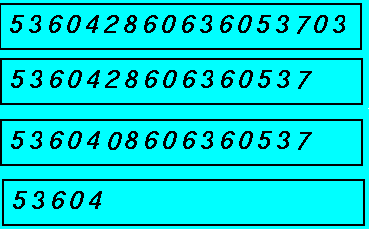- 无人值守模式,自习室创业,真的那么赚钱吗?
森屿旅人
“创业是一条不归路,不要拿自己亏不起的钱当赌注!”在和大家分享无人自习室创业经历前,先和大家强调上面这一句话,创过业的朋友,应该深有体会。因为,我们要深刻的认知市场规律,一个行业,如果利润很高,那必然趋之若鹜得涌入,所以在市场充分博弈以后,市场会回归价值本身,这个是市场的客观规律。因此,不要抓风口,抓风口,说实在的,和赌博无异,那些和你鼓吹风口的人,永远是把你当成一根韭菜,诚然,真正赚钱的项目,不
- 婚姻的本质到底是什么?
情新花生
知乎上最高赞的答案是这么说的,婚姻这种东西,最大的本质,就是双赢。爱是一场博弈,必须保持永远与对方不分伯仲、势均力敌,才能长此以往地相依相惜。因为过强的对手让人疲惫,太弱的对手令人厌倦。男人与女人首先都是自己,然后才是彼此感情的依赖。婚姻生活中,互相包容,彼此成就。而这过程中,最重要的是要有共情力,高质量的、稳定的、和谐的关系才能让婚姻更长久,彼此更幸福。而独立是女人身上最好的美德,也是女人给自己
- 企微scrm系统如何打造本地私域电商平台
ZHENKESCRM
企业微信
随着网络的发展,很多的品牌商家都已经明白了私域的重要性,也已经纷纷入局私域。企微scrm系统如何打造本地私域电商平台已经成为越来越多企业关注的问题。而很多客户的微信里也已经添加了N多品牌的企微号,同一品类,客户同时接收着不同商家的信息,也进入了不同商家的私域池里,客户和商家已经形成了1对N的局面。面对这样的现状,对商家来说,已经进入了私域博弈的阶段,大家面临着私域存量客户之间的竞争。不仅仅是如何引
- 谈判-如何在博弈中获得更多7、对谈判者最有用的问题-如何避免措词含混的合同
微醉煮书人
只要多问几个为什么就行了。每个问题都有两个简单的字开通,要一直问到把一切都考虑到了为止。这两个字就是:万一!自我测试:1、你创办了一家快递公司。可是就在繁忙的周末快来的是时候,你的一台车大梁坏了。你有位朋友正好有一辆空闲的货车,他答应将车租给你,可以一直用到你那车修好的时候。你要他出张字据,上面这么写“一台车,800元,一周的租金。”请问你会:A)照他的要求写字据;B)坚持签一份正式的合同;C)告
- Stackelberg模型介绍和应用举例
Rodgers-
数学建模
Stackelberg模型介绍Stackelberg模型是一种博弈论的经济模型,其核心思想是两个或多个决策者的行为互相影响。这个模型是由德国经济学家HeinrichFreiherrvonStackelberg于1934年提出的,因此得名Stackelberg模型。基本概念Stackelberg模型的基本概念是“领导者-追随者”模型。这里有两个角色:一个是领导者,即市场上的主导者,另一个是追随者,即
- 博弈论专题 kuangbin题单(巴什,威佐夫,nim,fib博弈)+SG函数打表
我不是手机
博弈论
省赛前先练着,回来补完巴什博弈:一堆n个物品两个人来拿,每人至少拿一个,最多拿m个,问最后取完的人win判断条件:n%(m+1)!=0cin>>n>>m;if(n%(m+1)!=0)cout>a>>b;if(a>b)swap(a,b);inttemp=(b-a
- 决胜高三: 把握成绩稳定的技巧,是真正的致胜之道
自在人生wub
高三学生大考成绩起伏是正常现象吗?应如何正确应对?笔者作为一个做过多年高三班主任与任课老师的教育教学经验丰富者,可以明确的告诉你,这是非常不正常的。高三的真正学优生几次大考成绩都是比较稳定的,这也是他们博弈211或985重点大学的资本!图片发自App高三的大考通常有三次,亦即一模、二模、和三模,三次高考模拟考试。通常情况下,一模考试是最难的,也是最能反映学生真实实力的老师,一般叫做摸底考试;通过一
- 好产品性能
马唐
0902学习思考笔记:一款好产品必须拥有卓越的性能:好用、价格实惠、方便省事、减少麻烦。但,必须强调:功能本身并不能创造出市场。探索需求是一场非常复杂的博弈,需要同时从多个层面分别下手。好的关键,就在于实现了密度密度指的是:单品有效使用频次。人们是否对任何产品,都能产生同等的情感共鸣?密切关注新出现的行业趋势,并努力赶在前面。伟大的需求创造者,能够减少或消除产品与服务中的不便、昂贵、令人不快和厌烦
- HDU - 1398 完全背包问题求方案数
tran_sient
算法以及模板完全背包求方案数
题目描述:ProblemDescriptionPeopleinSilverlandusesquarecoins.Notonlytheyhavesquareshapesbutalsotheirvaluesaresquarenumbers.Coinswithvaluesofallsquarenumbersupto289(=17^2),i.e.,1-creditcoins,4-creditcoins,9
- 以“读”攻毒21天焕新读书活动孙慧霞打卡第一天
孙慧霞shx
《鬼谷子》是一部集纵横家、兵家、道家、仙家、阴阳家等思想于一体的理论著作,本书对原作做了精当而晓畅的注释与翻译,每篇皆附有提要以解析、导读,并精选了古今中外颇具代表性的案例,涵盖管理、商场、职场、处事等各个领域,逐篇阐释、解读,用精彩纷呈的故事呈现鬼谷子的智慧谋略,今天读了第一篇捭阖,共17页,[为人处世]三思而行-别让愤怒之火毁了自己;[管理谋略]虚虚实实-郑国不确定的迷局;[商战博弈]周密贵微
- 012 椿响
少女椿mia
1.文章不能硬写,得软写。2.自私真的在文明史上具有重要的地位。古代文明在承认私利合理性的道路上走向民主和进步。现代文明进步需要人们在公私博弈中更多选择功利放弃一部分私利。3.椿绝对不为自己说的话负责。因为椿自己也记不清了。4.居然又下雪了?期待明天。
- HDU 1573X问题(扩展中国剩余定理)
数学收藏家
数据结构算法
ProblemDescription求在小于等于N的正整数中有多少个X满足:Xmoda[0]=b[0],Xmoda[1]=b[1],Xmoda[2]=b[2],…,Xmoda[i]=b[i],…(0usingnamespacestd;#defineintlonglong#defineendl'\n'#defineIOSios::sync_with_stdio(false);cin.tie(0);c
- 全能型AI与专业型AI:多样性与精专性的博弈
wangzaojun
人工智能
随着人工智能技术的不断进步,AI的应用已经从单一领域扩展到几乎所有行业。近日,OpenAI宣布将在秋季推出代号为“草莓”的全新AI模型,这款全能型AI能够从复杂的数学计算到主观的营销策划,展现出令人惊叹的多样性。这一消息引发了广泛讨论:全能型AI是否会成为未来AI产品的发展方向?相比之下,专业型AI能否继续保持其不可替代的市场地位?本文将探讨全能型AI与专业型AI的优劣势,并分析其未来发展潜力。一
- 不可不读的书-《博弈论》
搬砖人1314
为什么这本书不可不读呢?《博弈论》从字面意思理解一人对一人、一人对多人、多人对多人之间为了某件事情或者物品或者观点的辩论,论述:博弈是一种神奇的智慧游戏。一个成功的人,需要掌握人生必知的博弈智慧,洞悉人性、圆润通达,善于运用能赢得人心的方式去应对人和事,唯有此,才能在人生的磨砺中游刃有余,挥洒自如。泛化的说:我们日常的工作和生活就是不停的博弈决策的过程。例如:今天我要去上班,几点去呢,我是开车去还
- 成年人通透法则
_心希_
不知不觉,新的一年已经开始了。这是《成年人通透法则》系列的第三篇,这个系列重在个人成长,自我提升,人性博弈方面。推出这个系列,也是想分享个人的一些浅薄经验和想法,希望能对大家带来一些收获,或是一种看问题的新角度。一,人生再难,不要让自己活成了笑话。有人总是说,为什么道理都懂,可就是过不好这一生?答案是道理都懂,但明知道那是错误,却明知故犯,做不到少犯错误或不犯错误。明知道不能说的秘密不能随便说,还
- HDU2196Computer 树形dp
Vibrant
传送门解法1树的直径参考博客#include//树的直径#defineMAXN10010usingnamespacestd;typedefpairP;intdis[MAXN],Max,root;vectora[MAXN];voidInit(intn){Max=0;for(inti=1;iMax)Max=sum,root=now;for(inti=0;i//记忆化搜索#defineMAXN10010
- 《特立独行的华夏文明》65第四章千锤万凿出深山19
mamimima
我这里粗略地论述了欧洲日耳曼人的一些历史过往。笔者大致总结盎格鲁撒克逊人这个族群几个特殊的行为特点。野蛮在日耳曼人早期(大约公元前2世纪)与罗马帝国不断碰撞时期,日耳曼人连部落联盟都没有实现,导致日耳曼人对在于罗马帝国长期博弈过程中处于下风。在于罗马的长期战争中,日耳曼人逐渐认识到团结起来对付罗马军团的必要性。于是在公元9年,组成联盟的日耳曼联军在条顿堡森林同罗马军队交战,几乎全歼3万罗马。其后日
- 过年回家,年轻人被父母逼着去相亲,68岁的阿姨坦言:再逼也没用
一月爱八月
导语:快过年了,这是一个团聚的日子,可是在大多数单身朋友眼里,回家过年,变成了回家相亲。这是一场与父母、亲戚和朋友无硝烟的斗争,暗争暗斗,敢怒不敢言的博弈。父母希望年轻人早点结婚生子,早早就给他们安排好了春节相亲流程。而年轻人呢?面对着聚会的“轰炸”,他们不想相亲,因为没有遇到合适的人,宁愿单身一辈子。68岁严阿姨的儿子,今年已经快40岁了,严阿姨逼着儿子相亲快10年的时间,她终于想明白了,单身有
- 王志文、俞飞鸿反腐剧《风雨送春归》全员戏骨开播,看情和法博弈
汤圆的铲屎官饺子
《风雨送春归》是由吴天戈执导,吴东编剧,王志文、俞飞鸿、王力可、于震、张秋歌、陈龙、石兆琪、鲁诺等主演的都市现实题材剧。电视剧讲述了东江市纪委书记赵达声奉命率领联合调查组,调查阳浦港危化品爆炸案以及环保工程和市政建设工程中的腐败案。调查期间涉及到战友余仲君。在战争中余仲君以为赵达声牺牲,于是按照托付照顾赵达声的妻儿,三人成立了家庭。等在战争中失忆的赵达声恢复后,发现妻子已经改嫁余仲君。一同出生入死
- 读一篇文章给我带来的思考
bestlanzi
今天读了冯仑老师推荐的《张维迎:要坚持的十种人生态度》很有感触,张维迎是我非常敬佩的经济学家,读他写的博弈与社会,刚读了2章,很有收获;张维迎老师是市场经济的信徒,在这篇文章中他给出了我们应该坚持的十种人生态度,分别是:一、追求“四无”上无领导、下无群众、目无组织、心无旁骛。这样一个仙风傲骨的学者的心态,保持了对世界最大的客观。二、坚守市场经济理念凡是有价的,市场上能买到的东西,都不是最珍贵的东西
- 《魔鬼》
我不是恶棍
一、在列维特看来,到底是“人性本善”还是“人性本恶”?人到底是“性善”还是“性恶”,这是一个大问题,古往今来的思想家们一直争论不休。如果把“性恶”定义为自私,“性善”定义为利他,那么传统经济学显然认为人是“性恶”的,也就是我们熟悉的“经济人”假设:人人都追求个人利益的最大化。但是,随着行为经济学理论的兴起,经济学家发现,有些时候人的行为是不完全符合经济人假设的。比如,有一个叫作“最后通牒”的博弈游
- 一天
潘多拉简书
单位因为一个报表,打了几通长长短短的电话,微信里各种文件佐证他们的理由。事不是不能做,只是关系理不顺,做起来名不正言不顺,况且这个事情本身做起来也不容易。不知道什么时候这种理不顺,上下不对应的关系什么时候才能结束,我估计暂时也无解。阿克塞尔罗德给我们的建议:不要嫉妒、不要作恶、赏罚分明、不耍小聪明。除此之外,还必须注意一点,阿克塞尔罗德游戏有一个前提条件,就是博弈的回合数要足够多,未来的利益要足够
- 2021-09-02
乡召
拥有让人变得从容,见识让人不再抬杠。丰富让人从容,不容易动怒发火。很多人以为有钱人脾气不好,其实大部分人好的不得了。任何让你情绪上大起大落的人和事,都会击垮你的意志。在博弈中,谁先被激怒,谁先失去优势,局势失控,就是最大的危险。这个时候你才会知道淡定有多重要,从容有多重要。淡定、从容,意味着不惧怕、不受制、逻辑清晰、有效、果断。如果可以,最好是这样体面的胜利,或者是退出。
- 3.5维度人生
老郑_e744
图片发自App人是大神的子民,服从大神,爱大神。人也是要进化的。3.5维度是比3.0维度更值得生活。AB法乐趣就是运动,吃好,博弈和操女人
- 改变习惯,这样开始最轻松
小鑫影评书评情感
图片源于网络又到了深夜加班时分,大脑里有一个声音叫喊着“停手吧”。其他人都在休息,为什么你就那么拼呢?明明自己知道应该努力下去,但身体好像不听指挥似的,软绵绵提不起精神。于是索性放下手中的工作,探讨一下理性与感性的力量,也就是所说的“象与骑象人”。1-改变的本质——博弈的赢家一般而言,大象代表感性,骑象人代表理性。大象有三个特点:力量巨大、受感性控制、受历史经验影响巨大。骑象人则对应地体现出:力量
- 2022-06-09
Doracmon
2022-6-9——得到头条中国知识创新走到哪一步了?华为公布第四届“十大发明”评选结果6月8日,华为在深圳召开“2022创新和知识产权论坛”,发布了第四届“十大发明”成果,包括高能效基础计算、多目标博弈、全精度浮点计算等等。这些重大科技成果的发明人都是华为员工,其中有几位还是刚加入华为没几年的年轻博士。我们知道,华为是中国乃至全球研发投入力度最大的企业之一。2016年以前,还没有一家中国公司进入
- 2022-01-23 产品学习(平台与头部主播)
哟西xixixixix
新知识:速朽:迅速腐朽GMV(全称GrossMerchandiseVolume):商品交易总额文章:《“分封”还是“削藩”?:平台与头部主播的博弈》-刘祥分封:平台对头部主播的流量倾斜和支持削藩:平台为了自身利益(当主播的坐大与平台的利益相悖)限制和削弱头部主播这取决于平台在不同时期的战略需求与利益目标。1.当平台开展新业务or规模扩张:树立标杆→快速聚拢公众注意力→提升热度(传播效应)2.当平台
- 华杉版资治通鉴【1890】综合博弈。2023-04-14
华杉2009
6、当初,张孝忠献出易州归顺朝廷,皇帝下诏以张孝忠为义武节度使,以易州、定州、沧州三州隶属于他。沧州刺史李固烈,是李惟岳之妻兄,申请辞职回恒州,张孝忠派押牙、安喜人程华去交接州事。李固烈取出军府中绫罗绸缎、金银财货数十车,准备带走,军士们大噪说:“刺史把府库一扫而空,全部带走,将士们将陷于饥寒,奈何!”于是杀李固烈,屠灭他全家。程华听到变乱消息,从墙洞逃出,乱兵们抓到他,请他主持州事。程华不得已,
- 余生,请和愿意饶恕你的人在一起,也盼望你成为那个愿意饶恕人的人。
Sert塞特
相依《简·爱》说,“爱是一场博弈,必须保持永远与对方不分伯仲、势均力敌,才能长此以往地相依相息。因为过强的对手让人疲惫,太弱的对手令人厌倦。”男人喜欢玩游戏,女人在旁边吐槽,游戏有什么好玩的,还不如陪我逛逛街。女人喜欢化妆,男人在旁边吐槽,整天就知道化妆,还不如做做家务。有的时候你会觉得男人女人就像来自不同世界的人,他不懂你的快乐,你不懂你的忧伤,不管怎么努力培养感情,都不在一个频道上。你们的思想
- 【论文笔记】Multi-Task Learning as a Bargaining Game
xhyu61
机器学习学习笔记论文笔记论文阅读人工智能深度学习
Abstract本文将多任务学习中的梯度组合步骤视为一种讨价还价式博弈(bargaininggame),通过游戏,各个任务协商出共识梯度更新方向。在一定条件下,这种问题具有唯一解(NashBargainingSolution),可以作为多任务学习中的一种原则方法。本文提出Nash-MTL,推导了其收敛性的理论保证。1Introduction大部分MTL优化算法遵循一个通用方案。计算所有任务的梯度g
- C/C++Win32编程基础详解视频下载
择善Zach
编程C++Win32
课题视频:C/C++Win32编程基础详解
视频知识:win32窗口的创建
windows事件机制
主讲:择善Uncle老师
学习交流群:386620625
验证码:625
--
- Guava Cache使用笔记
bylijinnan
javaguavacache
1.Guava Cache的get/getIfPresent方法当参数为null时会抛空指针异常
我刚开始使用时还以为Guava Cache跟HashMap一样,get(null)返回null。
实际上Guava整体设计思想就是拒绝null的,很多地方都会执行com.google.common.base.Preconditions.checkNotNull的检查。
2.Guava
- 解决ora-01652无法通过128(在temp表空间中)
0624chenhong
oracle
解决ora-01652无法通过128(在temp表空间中)扩展temp段的过程
一个sql语句后,大约花了10分钟,好不容易有一个结果,但是报了一个ora-01652错误,查阅了oracle的错误代码说明:意思是指temp表空间无法自动扩展temp段。这种问题一般有两种原因:一是临时表空间空间太小,二是不能自动扩展。
分析过程:
既然是temp表空间有问题,那当
- Struct在jsp标签
不懂事的小屁孩
struct
非UI标签介绍:
控制类标签:
1:程序流程控制标签 if elseif else
<s:if test="isUsed">
<span class="label label-success">True</span>
</
- 按对象属性排序
换个号韩国红果果
JavaScript对象排序
利用JavaScript进行对象排序,根据用户的年龄排序展示
<script>
var bob={
name;bob,
age:30
}
var peter={
name;peter,
age:30
}
var amy={
name;amy,
age:24
}
var mike={
name;mike,
age:29
}
var john={
- 大数据分析让个性化的客户体验不再遥远
蓝儿唯美
数据分析
顾客通过多种渠道制造大量数据,企业则热衷于利用这些信息来实现更为个性化的体验。
分析公司Gartner表示,高级分析会成为客户服务的关键,但是大数据分析的采用目前仅局限于不到一成的企业。 挑战在于企业还在努力适应结构化数据,疲于根据自身的客户关系管理(CRM)系统部署有效的分析框架,以及集成不同的内外部信息源。
然而,面对顾客通过数字技术参与而产生的快速变化的信息,企业需要及时作出反应。要想实
- java笔记4
a-john
java
操作符
1,使用java操作符
操作符接受一个或多个参数,并生成一个新值。参数的形式与普通的方法调用不用,但是效果是相同的。加号和一元的正号(+)、减号和一元的负号(-)、乘号(*)、除号(/)以及赋值号(=)的用法与其他编程语言类似。
操作符作用于操作数,生成一个新值。另外,有些操作符可能会改变操作数自身的
- 从裸机编程到嵌入式Linux编程思想的转变------分而治之:驱动和应用程序
aijuans
嵌入式学习
笔者学习嵌入式Linux也有一段时间了,很奇怪的是很多书讲驱动编程方面的知识,也有很多书将ARM9方面的知识,但是从以前51形式的(对寄存器直接操作,初始化芯片的功能模块)编程方法,和思维模式,变换为基于Linux操作系统编程,讲这个思想转变的书几乎没有,让初学者走了很多弯路,撞了很多难墙。
笔者因此写上自己的学习心得,希望能给和我一样转变
- 在springmvc中解决FastJson循环引用的问题
asialee
循环引用fastjson
我们先来看一个例子:
package com.elong.bms;
import java.io.OutputStream;
import java.util.HashMap;
import java.util.Map;
import co
- ArrayAdapter和SimpleAdapter技术总结
百合不是茶
androidSimpleAdapterArrayAdapter高级组件基础
ArrayAdapter比较简单,但它只能用于显示文字。而SimpleAdapter则有很强的扩展性,可以自定义出各种效果
ArrayAdapter;的数据可以是数组或者是队列
// 获得下拉框对象
AutoCompleteTextView textview = (AutoCompleteTextView) this
- 九封信
bijian1013
人生励志
有时候,莫名的心情不好,不想和任何人说话,只想一个人静静的发呆。有时候,想一个人躲起来脆弱,不愿别人看到自己的伤口。有时候,走过熟悉的街角,看到熟悉的背影,突然想起一个人的脸。有时候,发现自己一夜之间就长大了。 2014,写给人
- Linux下安装MySQL Web 管理工具phpMyAdmin
sunjing
PHPInstallphpMyAdmin
PHP http://php.net/
phpMyAdmin http://www.phpmyadmin.net
Error compiling PHP on CentOS x64
一、安装Apache
请参阅http://billben.iteye.com/admin/blogs/1985244
二、安装依赖包
sudo yum install gd
- 分布式系统理论
bit1129
分布式
FLP
One famous theory in distributed computing, known as FLP after the authors Fischer, Lynch, and Patterson, proved that in a distributed system with asynchronous communication and process crashes,
- ssh2整合(spring+struts2+hibernate)-附源码
白糖_
eclipsespringHibernatemysql项目管理
最近抽空又整理了一套ssh2框架,主要使用的技术如下:
spring做容器,管理了三层(dao,service,actioin)的对象
struts2实现与页面交互(MVC),自己做了一个异常拦截器,能拦截Action层抛出的异常
hibernate与数据库交互
BoneCp数据库连接池,据说比其它数据库连接池快20倍,仅仅是据说
MySql数据库
项目用eclipse
- treetable bug记录
braveCS
table
// 插入子节点删除再插入时不能正常显示。修改:
//不知改后有没有错,先做个备忘
Tree.prototype.removeNode = function(node) {
// Recursively remove all descendants of +node+
this.unloadBranch(node);
// Remove
- 编程之美-电话号码对应英语单词
bylijinnan
java算法编程之美
import java.util.Arrays;
public class NumberToWord {
/**
* 编程之美 电话号码对应英语单词
* 题目:
* 手机上的拨号盘,每个数字都对应一些字母,比如2对应ABC,3对应DEF.........,8对应TUV,9对应WXYZ,
* 要求对一段数字,输出其代表的所有可能的字母组合
- jquery ajax读书笔记
chengxuyuancsdn
jQuery ajax
1、jsp页面
<%@ page language="java" import="java.util.*" pageEncoding="GBK"%>
<%
String path = request.getContextPath();
String basePath = request.getScheme()
- JWFD工作流拓扑结构解析伪码描述算法
comsci
数据结构算法工作活动J#
对工作流拓扑结构解析感兴趣的朋友可以下载附件,或者下载JWFD的全部代码进行分析
/* 流程图拓扑结构解析伪码描述算法
public java.util.ArrayList DFS(String graphid, String stepid, int j)
- oracle I/O 从属进程
daizj
oracle
I/O 从属进程
I/O从属进程用于为不支持异步I/O的系统或设备模拟异步I/O.例如,磁带设备(相当慢)就不支持异步I/O.通过使用I/O 从属进程,可以让磁带机模仿通常只为磁盘驱动器提供的功能。就好像支持真正的异步I/O 一样,写设备的进程(调用者)会收集大量数据,并交由写入器写出。数据成功地写出时,写入器(此时写入器是I/O 从属进程,而不是操作系统)会通知原来的调用者,调用者则会
- 高级排序:希尔排序
dieslrae
希尔排序
public void shellSort(int[] array){
int limit = 1;
int temp;
int index;
while(limit <= array.length/3){
limit = limit * 3 + 1;
- 初二下学期难记忆单词
dcj3sjt126com
englishword
kitchen 厨房
cupboard 厨柜
salt 盐
sugar 糖
oil 油
fork 叉;餐叉
spoon 匙;调羹
chopsticks 筷子
cabbage 卷心菜;洋白菜
soup 汤
Italian 意大利的
Indian 印度的
workplace 工作场所
even 甚至;更
Italy 意大利
laugh 笑
m
- Go语言使用MySQL数据库进行增删改查
dcj3sjt126com
mysql
目前Internet上流行的网站构架方式是LAMP,其中的M即MySQL, 作为数据库,MySQL以免费、开源、使用方便为优势成为了很多Web开发的后端数据库存储引擎。MySQL驱动Go中支持MySQL的驱动目前比较多,有如下几种,有些是支持database/sql标准,而有些是采用了自己的实现接口,常用的有如下几种:
http://code.google.c...o-mysql-dri
- git命令
shuizhaosi888
git
---------------设置全局用户名:
git config --global user.name "HanShuliang" //设置用户名
git config --global user.email "
[email protected]" //设置邮箱
---------------查看环境配置
git config --li
- qemu-kvm 网络 nat模式 (四)
haoningabc
kvmqemu
qemu-ifup-NAT
#!/bin/bash
BRIDGE=virbr0
NETWORK=192.168.122.0
GATEWAY=192.168.122.1
NETMASK=255.255.255.0
DHCPRANGE=192.168.122.2,192.168.122.254
TFTPROOT=
BOOTP=
function check_bridge()
- 不要让未来的你,讨厌现在的自己
jingjing0907
生活 奋斗 工作 梦想
故事one
23岁,他大学毕业,放弃了父母安排的稳定工作,独闯京城,在家小公司混个小职位,工作还算顺手,月薪三千,混了混,混走了一年的光阴。 24岁,有了女朋友,从二环12人的集体宿舍搬到香山民居,一间平房,二人世界,爱爱爱。偶然约三朋四友,打扑克搓麻将,日子快乐似神仙; 25岁,出了几次差,调了两次岗,薪水涨了不过百,生猛狂飙的物价让现实血淋淋,无力为心爱银儿购件大牌
- 枚举类型详解
一路欢笑一路走
enum枚举详解enumsetenumMap
枚举类型详解
一.Enum详解
1.1枚举类型的介绍
JDK1.5加入了一个全新的类型的”类”—枚举类型,为此JDK1.5引入了一个新的关键字enum,我们可以这样定义一个枚举类型。
Demo:一个最简单的枚举类
public enum ColorType {
RED
- 第11章 动画效果(上)
onestopweb
动画
index.html
<!DOCTYPE html PUBLIC "-//W3C//DTD XHTML 1.0 Transitional//EN" "http://www.w3.org/TR/xhtml1/DTD/xhtml1-transitional.dtd">
<html xmlns="http://www.w3.org/
- Eclipse中jsp、js文件编辑时,卡死现象解决汇总
ljf_home
eclipsejsp卡死js卡死
使用Eclipse编辑jsp、js文件时,经常出现卡死现象,在网上百度了N次,经过N次优化调整后,卡死现象逐步好转,具体那个方法起到作用,不太好讲。将所有用过的方法罗列如下:
1、取消验证
windows–>perferences–>validation
把 除了manual 下面的全部点掉,build下只留 classpath dependency Valida
- MySQL编程中的6个重要的实用技巧
tomcat_oracle
mysql
每一行命令都是用分号(;)作为结束
对于MySQL,第一件你必须牢记的是它的每一行命令都是用分号(;)作为结束的,但当一行MySQL被插入在PHP代码中时,最好把后面的分号省略掉,例如:
mysql_query("INSERT INTO tablename(first_name,last_name)VALUES('$first_name',$last_name')");
- zoj 3820 Building Fire Stations(二分+bfs)
阿尔萨斯
Build
题目链接:zoj 3820 Building Fire Stations
题目大意:给定一棵树,选取两个建立加油站,问说所有点距离加油站距离的最大值的最小值是多少,并且任意输出一种建立加油站的方式。
解题思路:二分距离判断,判断函数的复杂度是o(n),这样的复杂度应该是o(nlogn),即使常数系数偏大,但是居然跑了4.5s,也是醉了。 判断函数里面做了3次bfs,但是每次bfs节点最多



